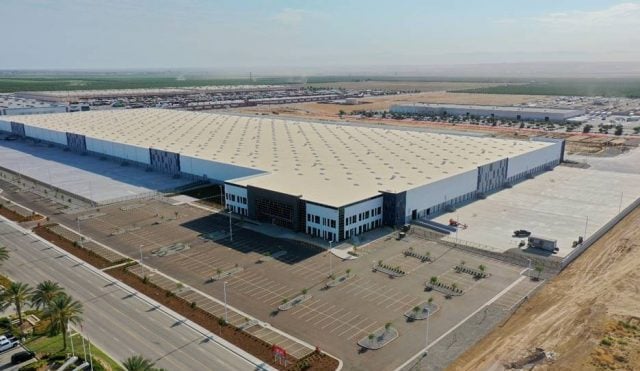SAN FRANCISCO—“Commercial real estate is a hugely inefficient industry given its size. Companies are forced to sign a long-term lease based on a prediction of what their long term requirements are going to be.” That is according to Duncan Logan, CEO and founder of RocketSpace, a San Francisco-based technology campus that offers shared work space for startups. We recently spoke with Logan on the concept of office-as-a-service, which has growth something like 40% since 2011.
GlobeSt.com: I know that in San Francisco, office-as-a-service has grown significantly and now accounts for almost 1% of all commercial real estate (approx. 700,000 square feet). Tell me a bit about this shift from independently owned office space to the office-as-a-service model and how your firm is involved.
Duncan Logan: People used to have to go to the office to access systems, files and to interact with coworkers. This is no longer the case. Work today is accessible remotely, giving employees and employers far more options when it comes to office space.
At the same time, we are witnessing great efficiencies in the "as-a-service" model. Software-as-a-Service allows one central team to maintain and support a system for millions of customers and Infrastructure-as-a-Service offers far greater flexibility and scale than hosting one's own servers. Both of these offerings are causing a shift from a CAPEX expenditure to the OPEX model. No company wants to own servers, cool them, support them, etc. they just want to use the processing power. I believe it's the same for real estate. Companies don't want to lock up capital in deposits, furniture, security systems and build out costs. They would be better off spending that money on marketing or product development.
Additionally, commercial real estate is a hugely inefficient industry given its size. Companies are forced to sign a long-term lease based on a prediction of what their long term requirements are going to be. If the company plans to grow, chances are they will have excess capacity for the first few years. Alternatively, if the company grows faster than expected, they could find themselves locked into a lease that's too small. Companies are more fluid today than ever before, scaling up and down as demand for their product or service shifts. The customer wants flexibility from an industry built around rigidity.
Real estate will be slow to change to the new needs of the customer because it is financed on long-term, credit worthy predictable revenue streams, but that will change eventually.
GlobeSt.com: I know you work on shared work space for startups and have more than 600 desks and 170 tech startups on your campus. Can you tell me how shared work space can significantly cut costs and what makes it so beneficial?
Logan: The sharing economy is highlighting how inefficient we are with so much of what we own. Cars spend 90% of their time parked and boardrooms spend 90 percent of their time empty, or half empty. If you break down Office-as-a-Service into parts, you can see the benefits of a shared economy. Meeting rooms, phone systems, kitchen, security, Internet, furniture, reception, etc.—all of these shared resources spread the costs that each individual company would have to address otherwise. While sharing these services is a major perk, the biggest benefit is that companies only have to pay for the space they need today. They also become part of a community.
GlobeSt.com: What are some of the challenges startups can avoid by using shared workspace instead of getting their own office space?
Logan: Most startups are not profitable on day one. I would challenge any startup CEO who feels it is more beneficial to spend money on securing, fitting out and equipping an office over spending that money on marketing, product development or other activities that drive sales.
There are valid arguments that a great workspace attracts talent, and that it's tricky to build culture in a coworking space, but coworking is rapidly evolving. With the modern Office-as-a-Service model, companies can often obtain enough privacy to build a great space and a culture that will help attract talent.
Also worth noting, building out an office space can be hugely distracting, frustrating and risky for a business. Most startup entrepreneurs are novices at this, and what should be simple costs can easily run over budget. It takes time and skill to get up to speed on how to manage such a project.
GlobeSt.com: How is coworking becoming a viable option for companies larger than the 3-5 person startup?
Logan: I think many companies are starting looking at a "Hub and Spoke" model. The “hub” may be their head office for which they'll make a long-term commitment. They'll also spend money on building it out so that it represents their brand and defines their culture. As the company grows, they will expand to "spokes" in new locations and new markets. It is tough for a company to predict the size or success of a spoke early on, so this is where a flexible Office-as-a-Service model works really well.
At RocketSpace, we have seen this a lot. We've had "spokes" from companies like Spotify, Zappos, Supercell, Achievers and Hootsuite in recent years. All were large companies using a flexible real estate model to start building a presence in San Francisco.
GlobeSt.com: In your opinion, what does it take to make coworking successful?
Logan: As more coworking options become available, people need to choose a space, not because of the real estate, but because of the community and services that it offers. I think it's dangerous to try to be all things to all customers, so even coworking spaces will need to become tailored to the customers that they want to service. For example at RocketSpace, we are focused specifically on high-growth technology startups and creating an environment that fits the needs of those companies.
© Touchpoint Markets, All Rights Reserved. Request academic re-use from www.copyright.com. All other uses, submit a request to [email protected]. For more inforrmation visit Asset & Logo Licensing.







